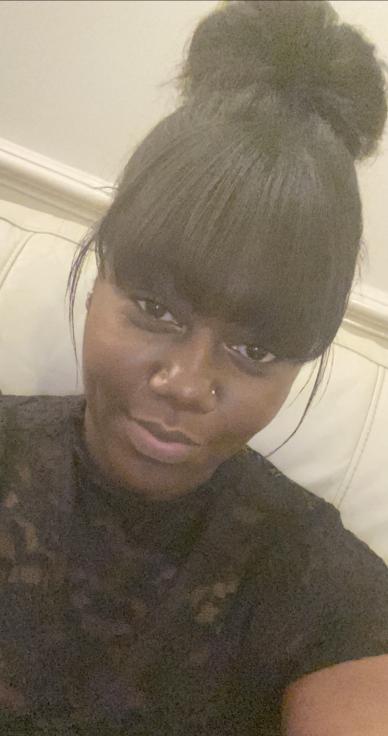One day in October 2018, I woke up and had a slight blur/fuzziness across my right eye that just didn’t go away. It was really hard to describe because at first, I could still see - but it was like looking through a smeary window. I went to the opticians and was advised to get it looked into further. The following day I went to the eye emergency, where they carried out numerous scans and tests but said there was nothing wrong with my eye. However, they booked me a follow up visual field test as a precaution.
Two weeks later and my vision had reduced, I had developed blind spots and it started throwing off my balance. I remember watching TV and just realising I could not see clearly at all. I went back to the eye emergency, where they did the same scans and tests as before but this time said I could have inflammation at the back of my eye, which could take weeks-months to improve.
The following two weeks I had my visual field test and consultant appointment. My vision had significantly decreased by this stage, I could hardly see. The consultant started to say they thought I had a lazy eye, until they looked at my test results, which caused confusion and concern. I was sent for an emergency brain MRI.
I was diagnosed with optic neuritis as clinically isolated syndrome in early December 2018. The consultant briefly mentioned MS and asked if I had heard of it, which I had but I knew absolutely nothing about it. I was also advised that due to other areas of inflammation on my brain, I had a more than 50% chance of this happening again.
However, I wasn't told what symptoms to look out for, nor was I given any contact information in case I did notice changes. I do think that I would have made an effort to reduce my risk of relapse if I had more information on how to protect myself back then.
In February 2019, I started going to the toilet a lot more – there were days when I went to the toilet over 20 times. By March, I was struggling with sensitivity to light and headaches but my vision had pretty much returned to normal and I was discharged from the eye clinic. Alongside the urinary frequency (neurologist referred me to a urologist who did numerous tests and found no bladder problem), I also started to experience weakness in my left leg and arm.
In April 2019, my workplace at the time started offering private medical care. I booked a private appointment with a neurologist who referred me to his colleague who focused on MS. I was sent for another MRI and a lumbar puncture. In May, I received my diagnosis of relapsing remitting multiple sclerosis. I was 25.
I felt sad but mostly relieved. The not knowing and uncertainty was really hard for me. I’m someone who likes to plan and know all relevant information and without a diagnosis I felt I couldn’t be in control of anything.
Given that I already had the diagnosis of CIS, I am surprised that my bladder symptoms, headaches and weakness didn't ring any bells for the neurologist and urologist I saw in March. Maybe I would not have needed to see the private specialist and have the extra tests.
I didn’t dwell on the negatives of the situation, I focused on the positives and how I could be better for myself. I was offered a choice of disease modifying drug (DMD) and I chose Ocrevus, as it's highly effective and suits my life best. I didn't want to self-inject or take tablets every day. I started Ocrevus in November 2019 – I had some manageable side effects after the first half dose, which caused delays but have been feeling good since receiving the second half dose. Unfortunately, due to Covid-19 my subsequent infusion has been delayed, and I haven't heard when the next one will be.
MS has definitely changed me. I’m not the same person I was before MS or during diagnosis. I do more for myself. I make a conscious effort to push myself. Of course, I have down days but I stay positive and keep going. Things that really keep me going are; cooking, writing and exercise. MS has also given me the push to do things I’ve always wanted to do but been a little afraid of. I’ve just started my blog and will be starting my own business before the end of the year.



